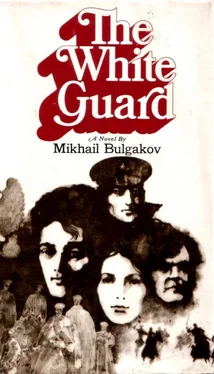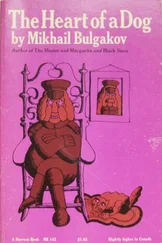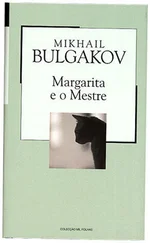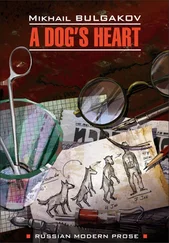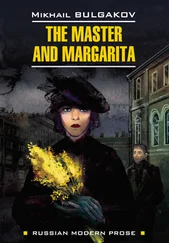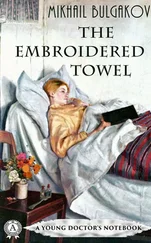MIKHAIL BULGAKOV - THE WHITE GUARD
Здесь есть возможность читать онлайн «MIKHAIL BULGAKOV - THE WHITE GUARD» весь текст электронной книги совершенно бесплатно (целиком полную версию без сокращений). В некоторых случаях можно слушать аудио, скачать через торрент в формате fb2 и присутствует краткое содержание. Жанр: Русская классическая проза, на английском языке. Описание произведения, (предисловие) а так же отзывы посетителей доступны на портале библиотеки ЛибКат.
- Название:THE WHITE GUARD
- Автор:
- Жанр:
- Год:неизвестен
- ISBN:нет данных
- Рейтинг книги:3 / 5. Голосов: 1
-
Избранное:Добавить в избранное
- Отзывы:
-
Ваша оценка:
- 60
- 1
- 2
- 3
- 4
- 5
THE WHITE GUARD: краткое содержание, описание и аннотация
Предлагаем к чтению аннотацию, описание, краткое содержание или предисловие (зависит от того, что написал сам автор книги «THE WHITE GUARD»). Если вы не нашли необходимую информацию о книге — напишите в комментариях, мы постараемся отыскать её.
Copyright © 1971 by McGraw-Hill Book Company.
Library of Congress Catalogue Card Number: 70-140252 08844
Printed in Great Britain
THE WHITE GUARD — читать онлайн бесплатно полную книгу (весь текст) целиком
Ниже представлен текст книги, разбитый по страницам. Система сохранения места последней прочитанной страницы, позволяет с удобством читать онлайн бесплатно книгу «THE WHITE GUARD», без необходимости каждый раз заново искать на чём Вы остановились. Поставьте закладку, и сможете в любой момент перейти на страницу, на которой закончили чтение.
Интервал:
Закладка:
My companion and I exchanged glances.
'You lived on the first floor, then?'
'Yes. And his water was always dripping on to our heads. One day the ceiling almost caved in, so my father, a very decent, well-educated man - and he was the landlord, after all: they rented the apartment from us . . .' (we exchanged looks again) '. . . went upstairs and said: "Look here Misha, you must see to those faucets of yours, we're being flooded out downstairs . . ." And Misha was so rude to him in reply, so rude . . .'
But we never heard exactly what it was that Misha had said, because at that moment the conversation was interrupted by the blond lady's daughter, combing her mass of golden hair as she came in from the passage.
'Why all these details, mother?'
Her mother looked rather embarrassed, although she said at once that she saw nothing wrong in all these details, they were simply an illustration of one side of Misha's character, and for the third time my friend and I glanced at each other.
'So you lived on the first floor? And your back door was at basement level?'
'Yes, that's why the water dripped through on to us.'
It was obvious: the first floor, the landlord . . . Absolutely clear. We were talking to none other than the daughter of the owner of the Turbins' house, Vasily Ivanovich Lisovich, alias Vasilisa.
The detailed, and in the case of Mikhail Bulgakov none too
sympathetic analysis which our hostess gave us raised the question in our minds: had she read The White Guard? She had obviously seen the play based on it, The Days of the Turbins, when the Moscow Art Theater had taken it on tour to Kiev immediately before the war (her son saw it, at any rate: it had been impossible to get tickets, but as soon as he had said that he was the grandson of the man who had owned the house where the Bulgakovs had lived, they had given him a ticket at once). In short, we assumed that she knew the play, but the whole point was that Vasilisa, her father, is not in the play: he is not even mentioned. But he is in the novel. Vasilisa might have read it, but he was unlikely to have wanted his children to read it . . .
'There's no getting away from it,' the lady of the house smiled sadly as she folded the net curtains, 'we and the Bulgakovs were rather like the Montagues and the Capulets ... So on the whole we didn't . . .'
It further transpired that she had something of a grudge against Bulgakov not only as a tenant but as a writer as well. It so happened that in the late twenties or early thirties, when the government requisitioned all privately-held gold coinage, one of their neighbours who lived just across the street remembered that in some novel or other Misha had written about a certain house-owner who had hoarded some money; so, if this turned out to be true . . . There was no such hoard; but all the same, the story had led to some unpleasant consequences for her father. Why did Misha need to make his identity so plain?
Both of us involuntarily looked out of the window: where was the tree, the acacia, from which the Petlyurovite bandit had spied on Vasilisa's efforts to conceal his belongings in a hiding place in the wall? But we were unable to find it, then or later. After all, forty years had passed. On the other hand, we did find the gap between the two houses, Nos. 13 and 11, where Nikolka had hidden the biscuit tin containing the pistols, officers' epaulettes and the portrait of the Tsarevich Alexei. And even the planks of the fence were broken, just as if the thieves had crawled through that very gap only today or yesterday.
Today? Yesterday? The day before yesterday? Suddenly everything was confused, mixed-up, displaced . . .
In this same room where we were now sitting, with its three windows on to the street, with the same view on to the hillside which had not changed at all since then (except for the disappearance of the acacia which had cast its shade over the sitting-room), in this same sitting room there had lived a tall blue-eyed man, ironic and caustic, who used to walk rapidly up and down, tossing back his hair, who had then gone away to Moscow and had never come back here again ... In this same sitting room, which in those days had pinkish wallpaper, with its cream-colored blinds, many years ago on a freezing December night three officers, one cadet, and a silly young man who had had been abandoned by his wife were playing whist, while a man lay in the next room delirious with typhus, and while at the same time, downstairs on the first floor, a gang of Petlyura's men were robbing the landlord, after which the wretched man had run upstairs and fainted, and they had thrown cold water over him . . .
This same apartment, this same room had once smelled of pine branches at Christmas time, paraffin-wax candles had burned with a faint crackle, hortensias and langorous roses had stood in the pillar-shaped vase on the starched white tablecloth, the clock with the bronze shepherds had played its gavotte, while the black clock on the dining-room wall had echoed its chimes; the music of Faust lay open on the grand piano, the people drank wine and vodka, and sang an epithalamion to the god Hymen and another tune which reduced the landlord, with his Taras Bulba moustaches, and his wife, to terror: 'What the hell's going on? At three o'clock in the morning! This time I really am going to lodge a complaint!'
And now all that is gone. The library, the falcon on the white sleeve of Tsar Alexei Mikhailovich, Louis XIV in his heavenly bower on the banks of a silken lake, the bronze lamp under its green shade - they are all gone; and the cold, carefully washed Dutch tiles stare sadly at the hissing blue flames and saucepans on the gas stove. And the people who lived on the first floor have moved upstairs and Vasilisa is presumably dead (in our embarrassment we somehow forgot to enquire about him), and Vasilisa's golden-haired grand-daughter lives in Nikolka's room (twenty-six square metres, as our hostess informed us).
And what about Nikolka?
Yes, Misha had two brothers. Nikolai and Vanya. Nikolai was the older of the two, the second son after Misha, quiet and serious, the most serious-minded of them all. He died in the January of this year in Paris where he was a professor. It is quite something for a Russian emigre to be a professor in Paris. He was very clever, and was regarded as the cleverest of them when they had lived here. And Vanya? Vanya was also in Paris, but he was not a professor . . . He had played in a balalaika band, or something of that sort. He was the youngest of them all and was probably still alive . . . two of the sisters were still living, both of them in Moscow. One was seriously ill, and they still occasionally corresponded with the other sister, Nadya. When she had been in Moscow she had been to see her. Not long ago her picture had been in a newspaper, taken against the background of Misha's library. His library was still intact. But Misha was dead . . .
At this point our hostess stopped ironing and gave us a searching and mistrustful look:
'He's become famous, you say?'
'Yes, he has . . .'
She shook her head.
'Who would have thought it? You see, he was so unlucky ... It's true, Nadya did write to me not long ago that something of his was being published and lots of people were reading it . . . But it was all so long ago . . .'
The children, a boy and a girl, burst in once more and were chased out again. The husband idly looked for something in the cupboard and sat down again, although he was really supposed to go out. The daughter who was still combing out her hair, tried to break into the conversation - why hadn't her mother told us anything about Lancia? But here, for all her garrulity, her mother suddenly balked - there was nothing interesting in that story. The daughter assured us that it was very interesting, at least to her it was. But her mother showed a strange obstinacy. All we learned was that Lancia had been the owner of the Hotel d'Europe on what was formerly Imperial Square (this piece of information was the second and final sentence spoken by the husband), that he had a country villa in Buch opposite the Bulgakovs' villa, and that he had a conservatory . . . That's all, she said, nothing interesting, as you can see. We realised that there was something interesting behind it, but for some private reason she did not want to tell us about what had obviously been some complication in the triangular relationship between the Bulgakovs, Lancia and Vasilisa, and we did not press her.
Читать дальшеИнтервал:
Закладка:
Похожие книги на «THE WHITE GUARD»
Представляем Вашему вниманию похожие книги на «THE WHITE GUARD» списком для выбора. Мы отобрали схожую по названию и смыслу литературу в надежде предоставить читателям больше вариантов отыскать новые, интересные, ещё непрочитанные произведения.
Обсуждение, отзывы о книге «THE WHITE GUARD» и просто собственные мнения читателей. Оставьте ваши комментарии, напишите, что Вы думаете о произведении, его смысле или главных героях. Укажите что конкретно понравилось, а что нет, и почему Вы так считаете.
